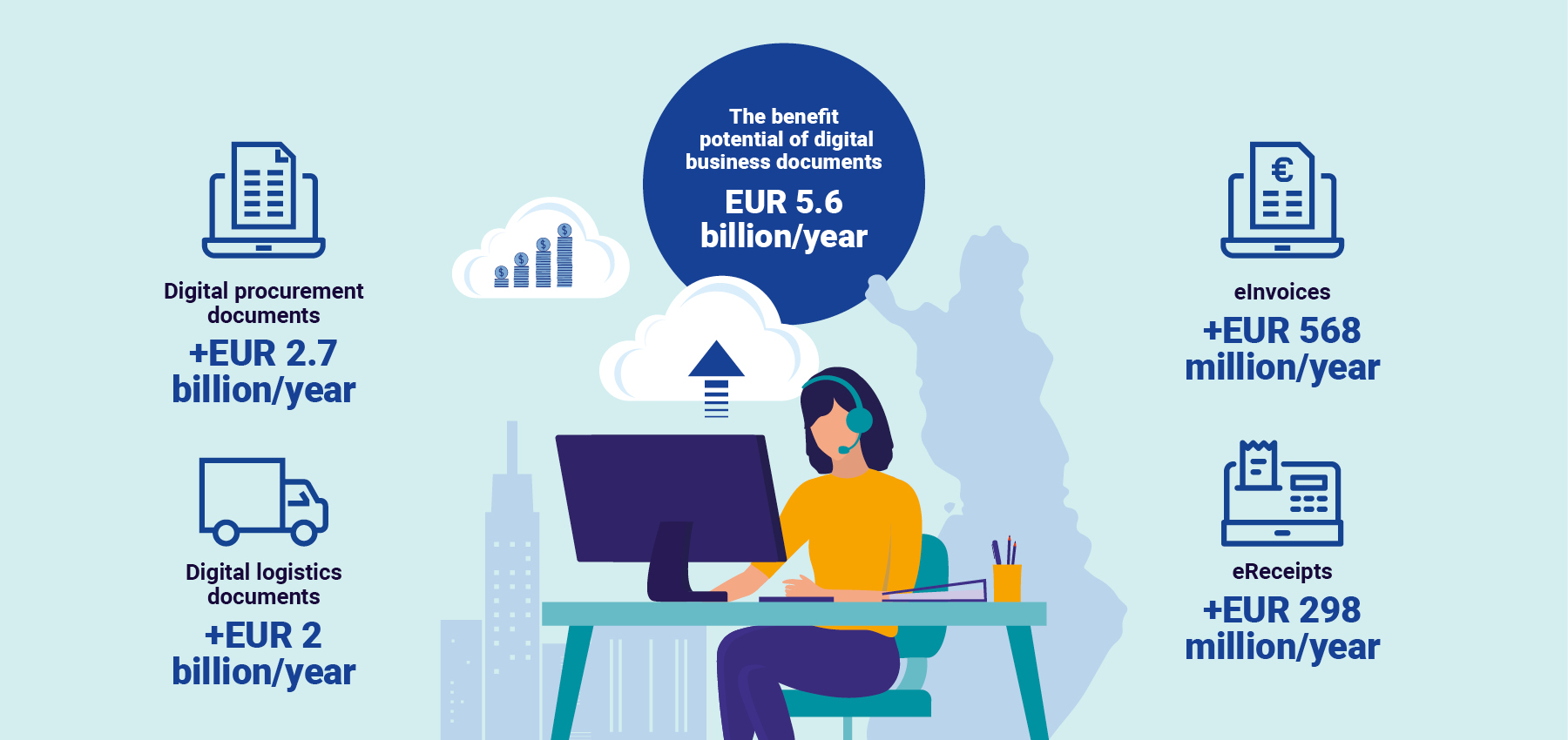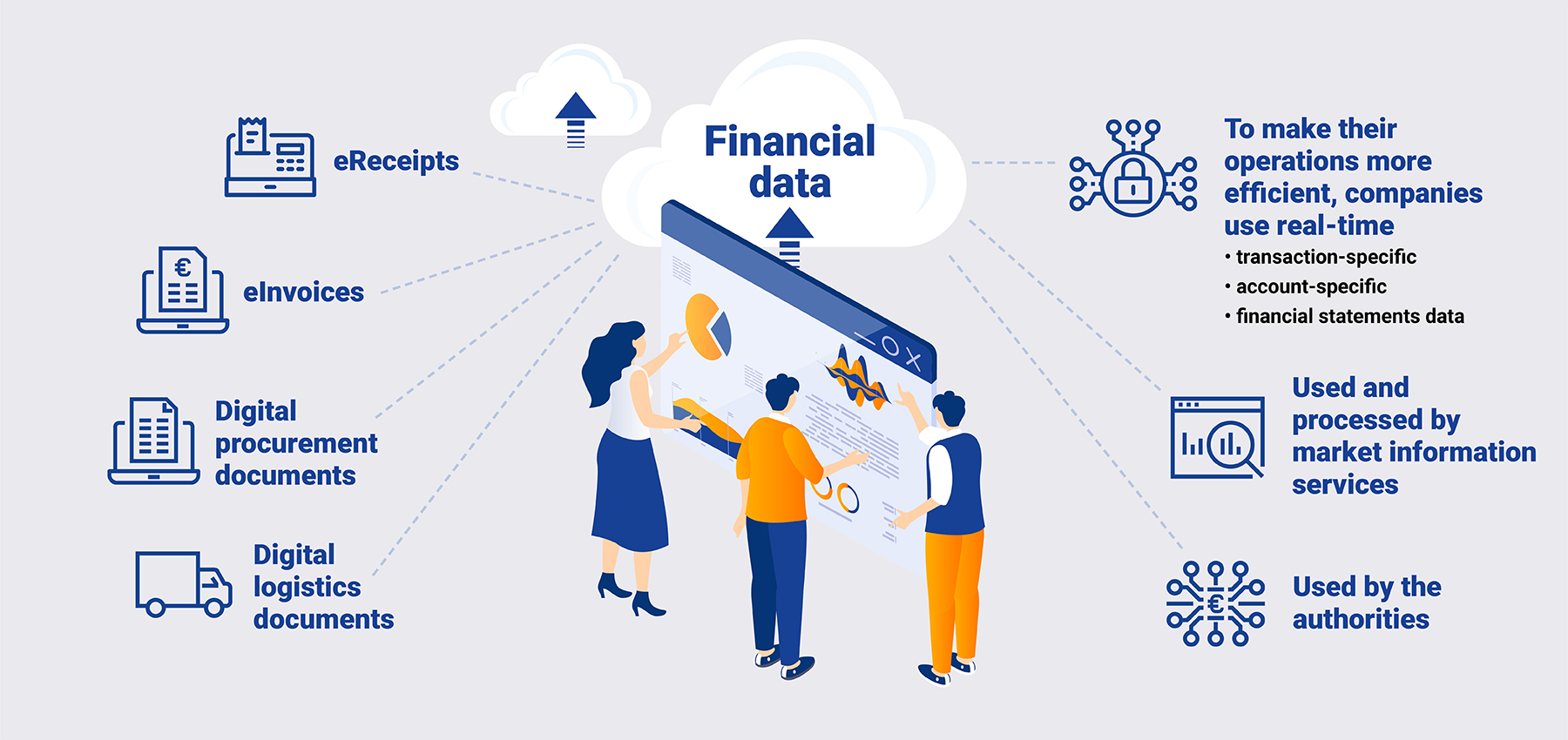Digital economy and real-time economy refer to a whole in which all business transactions are based on machine-readable information and its processing. There will no longer be any need for manual entries, data transfers and reporting, as data moves between actors in a pre-defined format and securely between different actors.
Vision: Finland is the most competitive operating environment in 2030
- The digital ecosystem for businesses is interoperable both nationally and with other Nordic countries and the EU
- The entire life cycle of companies is digitalised, and companies have the capacity to operate digitally from the beginning
- A shared ecosystem and infrastructure enable sector-independent solutions
- Structured orders, e-invoices, e-receipts and other business data are transmitted between parties in a seamless and secure manner in real time
- Structured data can be analysed, processed and utilised between companies, in public administration and for the needs of the entire society
- New innovative services are created based on real-time data.
A common ecosystem and infrastructure eliminates the need for industry-dependent solutions. This means that there will only be interoperable easy-to-use services in the market designed to meet companies’ needs.
RTE benefits to the society at large
According to studies commissioned by the RTE project, the large-scale use of digital procurement documents, eInvoices and eReceipts would bring annual benefit of up to 6 billion euros to companies and public administration in 2030. (Image updated 16 October 2024.)

Digital business documents accumulate financial data, which can be used and processed on a large scale in the company’s own operations, public administration, and market information services.

